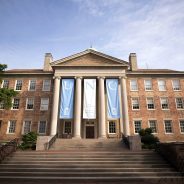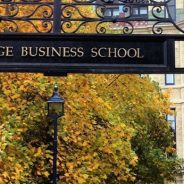Search results for :
How To Avoid Costly MBA Résumé Mistakes
Submitting a résumé is perhaps the most crucial part of every prospective MBA’s application process. A good résumé provides insight into who an applicant is, and what they’ve accomplished. A well-crafted, attention-grabbing résumé that captivates an admissions team can bring an applicant much closer to an acceptance letter.
But aside from a name, contact info, and educational and professional details, what should a slam-dunk MBA resume include?
What Are The Résumé Basics?
Starting with the principle basics, résumés should be short, sweet, and concise. Ideally, they should fit on one page—maybe two. Stephan Kolodiy, an admissions officer at Rutgers University, told U.S. News & World Report that long résumés are a common issue with many MBA applicants.
“Sometime we get a résumé that’s five to six pages long, and that’s way too much information,” he says.
That one-to-two pages of concise information should also be 100 percent accurate—one should never lie on a résumé. Because credibility plays a big role in the application process (MBA or otherwise), it is unwise to fabricate work or school experience. Deceitful, even exaggerated, résumés are always rejected by business schools, and admitted students who submit compromised résumés are at risk for expulsion. This is serious stuff, so don’t lie!
Carrie Marcinkevage, MBA Managing Director at the Smeal College of Business at Penn State University, told U.S. News that honesty is always the best policy.
“Authenticity allows you to find the right school and that school to find you,” Marcinkevage says. “Allow them the chance to find the real you.”
Perhaps most importantly, all MBA résumés should provide examples of success. Prospective MBAs should give admissions officers a reason to send an acceptance letter by showing concrete examples of career advancement, or of how an MBA candidate achieved results for a particular client.
“When applying to a top-tier business school, you’ll need to show admissions committee on a clear path of professional growth,” U.S. News reports.
What Are You Forgetting?
There are also some not-so-basic guidelines that MBAs are encouraged to follow when crafting a solid résumé. Investopedia published a guide reviewing some of the best resumes for MBA applicants that outlines a few tips that many prospective business students may not have previously thought of.
Without sounding like too much of a graphic design nerd, it’s important to take typeface into account with a résumé. Yes, fonts matter. It’s best practice to rely on on two typefaces: A bold sans-serif face for headers, and a standard serif face for body type. For those of you who don’t know, a serif is the tiny extension on the termination point of an individual letter, the little “hat” at the end of a letter if you will.
Serifs exist to make smaller text easier to read, so they are the best friend of admissions offices who may read hundreds of résumés per day. Sans-serif fonts—letters that don’t include serifs—are cleaner and pop easier when bolded out. Résumés should avoid using fonts that are too common, such as Times New Roman, but also avoid ridiculous fonts like Comic Sans. Nobody likes Comic Sans.
Aside from listing relevant work experience, and showing how much growth took place at each job, there are other skills that every résumé should highlight. According to U.S. News, the three skills that can best help sell an MBA applicants résumé to a business school are:
-
- Leadership
- Communication
- Innovation
First and foremost, business schools want to see strong leadership skills as well as personal growth. All MBA programs focus on developing management skills, but schools wants to know that a solid foundation of leadership is already there. Good résumés provide evidence of an applicant motivating a team behind a common goal, figuring out the best use of other’s talents and skills, instilling a concrete vision, and prioritizing the needs of an organization above personal needs.
As for communication, a résumé is an applicant’s first line of communication to a business school, and should be chock-full of structured writing and thought-out word choice. U.S. News shows the different between a boring resume and beautifully worded one:
“Here’s a real example of a blah bullet point in a client’s first draft: ‘Helped with new software implementation.’
Now, a brilliant bullet point: ”Spearheaded software upgrade in the San Francisco field office by coordinating with software developer, leading training sessions, and facilitating implementation schedule.’ The second example offers a much more comprehensive understanding of the scope of the accomplishment.”
Some applicants may try to hard to impress admissions officers with technical jargon or fancy terminology. Lose it, and show that you can clearly, and simply explain headier topics in writing:
“One client listed this bullet point on his resume: ‘Created VA1 Business Acquisition.’
Once we translated that into something the MBA admissions audience would understand, the résumé said: ‘Devised and launched outbound communications plan for our premier voice activated product. Product was well received and became cash flow positive within 14 months.’
Much better.”
Lastly, a résumé that shows an applicant has helped innovate will go a long way. This piece of advice is especially handy for applicants with traditional pre-MBA jobs. All admissions officers know what a consultant or analyst is tasked with at an entry-level position. A resume is an opportunity to shed light on things that sets an applicant apart from other typical analysts. Things to keep in mind include: training a newly hired analyst, leading college recruiting efforts, or organizing an office volunteering or fundraising initiative.
Avoiding Deceptive Mistakes
Now, here’s where we can get a little dramatic: Résumés are the first impressions a prospective MBA job candidates has with a potential employer. Since no one gets a second chance to make that first impression, don’t mess it up!
Bloomberg issued a list of the “Ten Biggest Resume Blunders” that outlines exactly what not to do with an application résumé, which includes obvious items like avoid writing a bad cover letter and remove foolish typos and inconsistencies.
The list also features some gems, like how to avoid making your résumé a cluttered mess. Again, not to sound like a graphic design professor, but the look of a résumé certainly counts. Avoid using fancy graphics or designs, and provide a crisp, clean document that’s easy to read on a computer screen.
“The résumé should be presentable, not an information dump,” Chris Thomas, Global Recruiting Director of the Experienced Commercial Leadership Program at General Electric, told Bloomberg. “There should be some white space.”
A well-done résumé shouldn’t misfire on any points—bullet points, that is. Some schools offer formats for resumes, specifically on how to list past job experience. Schools like the University of Michigan Ross School of Business advise students to use the “Action Context Result” format, which describes an action they performed, where they performed it, and the results it garnered.
“‘Worked for XYZ Corp., 2008 to 2012’ says close to nothing,” Damian Zikakis, Director of Career Services at Ross, told Bloomberg. “’Led a review of supplier contracts for the technology division resulting in savings of $250,000 opens doors.”
Lastly, a résumé should never disregard an applicant’s worth, nor should it overshare information. As we mentioned earlier in this piece, a good résumé should demonstrate what an applicant has accomplished and what they can bring to a new employer. It should not feature information that, even if positive, is irrelevant to a desired position.
“Think of the résumé as a future-focused document and not an historical one,” Char Bennington, Director of Career Management at the University of Chicago’s Booth School of Business, told Bloomberg. “Focus on what’s important to the people in the career that you want now.”
How Else Can Your Résumé Stand Out?
To help make sure a résumé stands out in the crowd, consider participating in some relevant volunteer work. David D. Schein, the Director of Graduate Programs for the Cameron School of Business at the University of St. Thomas, told MetroMBA that adding volunteer work to a résumé. With that said, not all volunteer work is equal.
For example, if you volunteer at the SPCA and play with puppies all day, that probably won’t your résumé or your application. Instead, find “responsible positions that deliver a lot of bang for the time commitment,” Schein says. Find a position that will allow you to spend time organizing a major fund-raising activity or event. It should be something that has a demonstrative impact on the organization and illustrates your leadership potential.
Including unique and interesting hobbies can also be a fun way to illustrate your skills and stand out. Schein recommends that applicants choose hobbies that “demonstrate drive and ambition. Some examples might include white water rafting or learning a difficult foreign language like Chinese or Farsi.”
Online MBA
Temple University Online MBA Program Structure
Temple’s Online MBA program is built on the foundation of helping students develop competencies in two key areas–business acumen and organizational leadership. The MBA helps develop students’ skills via a combination of on-demand video lectures and in-person learning. With multiple entry points for professionals with busy lives and demanding travel schedules, the Online MBA can be completed in as few as 20 months or in as many as six years.
Curriculum
Students may choose from a number of concentrations as they pursue the degree. Concentrations must comprise nine of the 12 elective credits and fall into the following categories: Business Analytics, Enterprise Risk Management, Entrepreneurship, Human Resources, Healthcare, Innovation, Financial, Marketing, or Strategic Management.
The program begins with a weeklong residency, and 48 credits must be completed to graduate. Students begin the Online MBA by taking three required courses and round out their major with the remaining 36 credits. Finally, the degree culminates with a capstone course in Enterprise Consulting.
Class Profile
Students in Fox Temple’s most recent Online MBA class have an average age of 36, and 35 percent of the class identifies as female. The average GPA was 3.21, and a typical student possessed 12 years of prior work experience. About 19 percent of students currently serve or have previously served in the military.
Career Statistics
Of the most recent graduating class, 54 percent of Online MBA students reported a receiving a promotion within the program’s average completion time. The average base salary increase for the class was 22 percent. The median base salary within three months of graduation was $105,000.
Tuition, Scholarships, and Financial Aid
Tuition for the Fox Temple Online MBA program is $1,245 per credit. For the entire 48-credit program, total tuition is $59,760.
Applicants are automatically considered for merit-based scholarships based upon academic achievements. As with the school’s other MBA programs, all Temple undergraduate alumni receive a 5 percent tuition scholarship. Veterans are eligible for $5,000 in funding under the Post-9/11 GI Bill and the Yellow Ribbon Program.
Qualifying students are also eligible for $20,500 in federal loans.
Admissions
The Online MBA Admissions Committee considers a number of factors when reviewing applications. Among them are professional work experience, managerial aptitude, willingness to participate in out-of-class activities, and professional development potential.
There is a $60 non-refundable application fee, and applicants must submit a current résumé along with two letters of recommendation. The GMAT requirement which may be waived if the candidate possesses managerial experience and a minimum of seven years of professional experience. Individuals with seven to 10 years of work experience are required to have had a minimum GPA of 3.0 during undergraduate coursework. Those with more than 10 years of professional experience are not required to report their undergrad GPA.
Application deadlines are as follows:
Finding The Best Toronto Accelerated MBA Programs
One-Year or Accelerated MBA programs give students the opportunity to gain the strong business foundation of an MBA education in half the time as a traditional MBA. Students in accelerated MBA programs can also reduce the overall cost of their degree while also minimizing the amount of time spent without earning a full-time income.
Last summer, we took a look at some of the city’s best accelerated program offerings. However, we have updated our overview, including more of our favorite Toronto school’s with uniquely exciting accelerated programs.
The Toronto Accelerated MBA Programs You Need To Know
Schulich School of Business – York University
The Accelerated MBA at York University’s Schulich School of Business gives students the chance to dive straight into the second year of their degree program. With the option to pursue the degree either full or part-time, students can complete the Schulich MBA in as little as eight months. The program is reserved for students who have completed either a BBA or BCom degree in Canada within the past ten years that is similar in structure to the BBA at Schulich, but students without this requirement may still be eligible for some form of accelerated degree.
DeGroote School of Business – McMaster University
The Accelerated MBA at the McMaster University DeGroote School of Business can be completed in as little as eight months if pursued on a full-time basis. Students in the accelerated program are exempt from first year MBA courses and will only pay half the tuition of the two-year program. The accelerated program is designed for students who earned an undergraduate business degree in the last ten years, maintained at least a B average in the final two years of their undergraduate degree, and have at least one year of professional work experience.
YOU MIGHT ALSO LIKE: Canada’s MBA Programs are Rising
Ivey Business School – Western University Canada
The One-Year accelerated MBA program at the Ivey Business School at Western University Canada is designed for ambitious students who want to further develop their leadership ability and accelerate their career. The Ivey MBA gives students real-world experiences through global learning opportunities and projects that provide hands-on business practice. The Ivey curriculum is centered around a unique case study method, which uses over 300 cases each year to allow students to practice real business challenges.
Rotman School of Management – University of Toronto
For advanced business school students with more professional experience, the Rotman School of Management at the University of Toronto offers a uniquely inviting One-Year Executive MBA; perfect for upper level managers looking to further develop their skills in management, decision-making and leadership. Within 13 months, the EMBA will provide students with hands-on leadership experience designed to change the way MBAs approach business and make decisions. The degree is also designed work around a student’s career, providing the opportunity for students to constantly be applying their education outside of the classroom.
Ted Rogers School of Management – Ryerson University
At Ryerson University’s Ted Rogers School of Management, students can select from a number of different formats in which to pursue their MBA. Students with a BBA, BCom or equivalent degree and at least two years of North American work experience have the option to earn their MBA in just 12 months. The Ted Rogers MBA program is centered around experiential learning, with events like Integrative Week/Weekend, allowing student work to be critiqued by industry professionals. Students will also be required to complete their final semester centered around real-world application of theory and analysis learned in the classroom through a capstone project and internship.
Online MBA
Temple University Online MBA Program Structure
Temple’s Online MBA program is built on the foundation of helping students develop competencies in two key areas–business acumen and organizational leadership. The MBA helps develop students’ skills via a combination of on-demand video lectures and in-person learning. With multiple entry points for professionals with busy lives and demanding travel schedules, the Online MBA can be completed in as few as 20 months or in as many as six years.
Curriculum for the Temple Online MBA
Students may choose from a number of concentrations as they pursue the degree. Concentrations must comprise nine of the 12 elective credits and fall into the following categories: Business Analytics, Enterprise Risk Management, Entrepreneurship, Human Resources, Healthcare, Innovation, Financial, Marketing, Travel & Tourism, or Strategic Management.
The program begins with a week-long residency, and 48 credits must be completed to graduate. Students begin the Online MBA by taking three required courses and round out their major with the remaining 36 credits. Finally, the degree culminates with the consulting capstone, a powerful immersion course through which you’ll gain the hands-on knowledge that will prepare you to lead
Class Profile
Students in Fox Temple’s most recent Online MBA class have an average age of 36, and 37 percent of the class identifies as female. The average GPA was 3.21, and a typical student possessed 12 years of prior work experience. About 19 percent of students currently serve or have previously served in the military.
Career Statistics
Of the most recent graduating class, 54 percent of Online MBA students reported earning a promotion within the program’s average completion time. The average base salary increase for the class was 22 percent. The median base salary within three months of graduation was $105,000.
Tuition, Scholarships, and Financial Aid
Tuition for the 2020-2021 Temple Online MBA program at the Fox School of Business is $1,245 per credit. For the entire 48-credit program, the total tuition is $59,760.
Applicants are automatically considered for merit-based scholarships based upon academic achievements. As with the school’s other MBA programs, all Temple undergraduate alumni receive a 5 percent tuition scholarship. Veterans are eligible for $5,000 in funding under the Post-9/11 GI Bill and the Yellow Ribbon Program.
Qualifying students are also eligible for $20,500 in federal loans
Admissions to the Temple Online MBA
The Online MBA Admissions Committee considers a number of factors when reviewing applications. Among them are professional work experience, managerial aptitude, willingness to participate in out-of-class activities, and professional development potential.
There is a $60 non-refundable application fee, and applicants must submit a current résumé along with two letters of recommendation. There is a GMAT requirement that may be waived if the candidate possesses managerial experience and a minimum of seven years of professional experience. Individuals with seven to 10 years of work experience are required to have had a minimum GPA of 3.0 during undergraduate coursework. Those with more than 10 years of professional experience are not required to report their undergrad GPA.
2020-2021 Temple Online MBA Deadlines
Online MBA
Online MBA@UNC Program Structure
Earning a Master of Business Administration from a top-ranked program opens doors to tremendous career opportunities. MBA@UNC blends top-20 ranked UNC Kenan-Flagler’s world-class curriculum, faculty and resources with the flexibility of online learning. Students network face-to-face with accomplished leaders, develop the insights to lead top organizations and earn the same degree as on-campus students.
MBA@UNC, offers ambitious working professionals from anywhere in the world the opportunity to earn an elite MBA from UNC Kenan-Flagler. Through the use of innovative technologies and real-world immersive experiences, MBA@UNC blends the flexibility of a global online program with the rigor, quality and classroom interaction of an on-campus experience. This innovative program offers students the chance to:
● Earn an elite MBA degree from anywhere in the world with no need to relocate.
● Develop the strategic insights to lead top organizations.
● Learn from expert faculty in live, face-to-face online classes.
● Participate in three-day, in-person immersions in cities all over the world.
Curriculum
MBA@UNC requires students to complete 66 credit hours. Students generally take two classes per quarter, in order to complete the program in 24 months. However, to allow for maximum flexibility, students can take classes full or part-time to earn a degree in as little as 18 or as many as 36 months, depending on their chosen course sequence.
Curriculum consists of core courses designed to build foundational business knowledge, as well as a number of elective courses that allow students to tailor their education to their own unique career goals. MBA@UNC students also have the opportunity to take credit-bearing elective coursework from other online graduate programs delivered by several top-tier colleges and universities.
Online MBA Rankings
• U.S. News & World Report: 1 (tie)
Career Statistics
The MBA@UNC Career & Leadership team offers post-MBA employment support to MBA@UNC students and alumni. The Career & Leadership team works with students on an individual basis to understand their career goals—whether those goals are to rise internally within their company or to make a larger transition—and work out a customized strategy for them. The Virtual Company Information Session replaces typical “on-campus recruiting,” enabling executives across industries to explain their companies’ cultures and hiring needs to current students. Following each session, the Career & Leadership team gathers the résumés of interested students and passes them onto the company’s recruiting team. Career support continues after graduation, as alumni can access their services as well as take additional MBA courses at any point.
Since the inception of the program in 2011, 76 percent of students were promoted or changed jobs while enrolled. After graduation, students have seen a nearly 30 percent increase in salary on average. Leading employers include Amazon, Bank of America, Google, Lockheed Martin, and other Fortune 500 firms.
Tuition, Scholarships, and Financial Aid
For the current academic year, MBA@UNC tuition costs $1,884.02 per credit hour, which brings tuition for the full 66-credit program to $124,345. Tuition covers student fees, simulations, assessments, technology use, global immersions, and some academic materials. It does not include textbooks or travel for immersions.
With regard to financial aid, MBA@UNC has partial tuition fellowships based on merit. The program also offers financial benefits for veterans. Additionally, students can secure federal and private loans to cover the cost of attendance.
Admissions
You must have a bachelor’s degree. We evaluate your ability to perform from your academic transcripts and Graduate Management Admission Test (GMAT) scores. MBA@UNC’s testing requirement is based on the applicant’s number of years of professional full-time work experience.
MBA@UNC applicants must have a minimum of two years of professional work experience. While we value advanced degrees as part of an application, they are not a substitute for work experience.
For those with seven or more years of professional full-time work experience:
● A GMAT External link or GRE External link score report is not required.
● Applicants may opt to submit a current test score as part of the application if they so choose.
● The Admissions Committee reserves the right to request a score report as additional information to more thoroughly assess an applicant’s quantitative and analytical readiness for the academic rigor of the program.
For those with less than seven years of professional full-time work experience:
● A GMAT External link or GRE External link score report is required.
● A waiver may be considered for a candidate whose academic records and professional work experience demonstrate a high level of quantitative and analytical skill and ability necessary for academic success in the MBA@UNC program.
Application deadlines are as follows:
July 2019 Start Date
Priority Deadline: March 18, 2019
Final Deadline: April 29, 2019
October 2019 Start Date
Priority Deadline: June 24, 2019
Final Deadline: August 5, 2019
January 2020 Start Date
Priority Deadline: September 23, 2019
Final Deadline: October 28, 2019
Online MBA
Kelley School of Business Online MBA Program Overview
The Kelley Direct Online Master of Business Administration (MBA) degree program offers the rigor expected from a world-renowned business school, with the flexibility needed to keep working while earning a degree.
- Two-year program, with the flexibility to extend
- Average of two live, 75-minute evening class sessions per week
- 50% core curriculum and 50% electives
- Seven majors to choose from
- In-person experiences
- Optional global and domestic immersion programs
Curriculum
Highlights of the Kelley Direct program are the required, in-person Kelley On Campus and Kelley On Location experiences. In the first-year experience, Kelley On Campus, students will work in a team to develop a solution to a real business challenge facing a real company. In the second-year experience, Kelley On Location, a faculty member designs a unique experience to connect a geographic location with a modern business topic.
The year one core curriculum must be completed before completing electives, chosen by the student. These electives give them the freedom to match their interests and strengths to one of the program’s seven majors.
Online MBA Rankings
- U.S. News & World Report: 1
- Princeton Review: 1
- QS (Americas): 1
How is Kelley Direct different from other Online MBAs?
- No outsourcing! All aspects of the program are designed and delivered in-house by residential faculty and staff at the Kelley School of Business. No outsourcing to a third-party online program manager (OPM) means lower tuition costs, with dollars reinvested right back into the quality of the education.
- Full-time faculty—no adjuncts. The instructors are the same top faculty who teach in Kelley’s in-residence programs. Faculty members also travel with students and teach in person at 12+ optional immersions offered each year in locations throughout the US and around the world.
- Dedicated executive career coaches to guide career success—now and anytime support is needed throughout a student’s career.
- Jellison Studios offers online students the experience of feeling like they are in a live classroom for faculty instruction and interaction with peers. Yet another Kelley innovation to make online classes more valuable and dynamic.
Class Profile
There are 1,239, students enrolled in the Kelley Direct Online MBA program, with 30% female students and 29 non-US countries represented. The average age of enrolled students is 33 years old, the average GMAT score is 650, and the average GPA is 3.44.
Career Statistics
85% of Kelley Direct Online MBA students started a new job or reported receiving a promotion or raise while enrolled in the program, with an average salary after graduation of $143,000.
Tuition, Scholarships, and Financial Aid
The total tuition for 54 credit hours is $88,320.17. This tuition rate applies to cohorts starting in fall 2023 and spring 2024 which is locked for 3 years. There is an additional $2,000 in fees that cover the in-person experiences, including lodging, meals, and course materials. The Kelley Direct tuition rate is locked for three calendar years from the term a student matriculates. Any courses taken after that time period are subject to the current tuition rate.
Multiple scholarships are available, and decisions are made prior to enrollment so the student knows exactly how much they are being awarded before committing to the program.
Students are eligible for federal financial aid through the FAFSA program. Military service members and veterans may be given additional financial support through the U.S. Department of Veterans Affairs Education Service, Indiana Department of Veteran Affairs, and the Veterans Affairs Vocational Rehabilitation and Employment.
Admissions Checklist
Part one (free and takes 5 minutes):
- Resume
Part two:
- Personal Statement
- One to Three Recommendations
- Official Transcripts
- GMAT or GRE Score (optional)
- TOEFL or IELTS score (international)
- $75 application fee (waivers available for veterans, as well as women in the Forte MBALaunch program)
Spring 2024 Kelley Online MBA Deadlines
November 15, 2023
Marshall MBAs Win Deloitte Human Capital Case Competition
Earlier this month, a team of MBAs from the USC Marshall School of Business won the Deloitte Human Capital Case Competition. The competition was hosted by Vanderbilt University’s Owen Graduate School of Management and featured a top prize of $10,000, according to a press release. Continue reading…
Ivey EMBA Alum Linda Hasenfratz Named Business Leader of the Year
EMBA alum Linda Hasenfratz from the Ivey Business School at Western University Canada was recently announced as the winner of this year’s Ivey Business Leader of the Year award.
Finding the Best Return on Investment for Your MBA in Washington DC (Part II)
Washington DC is littered with powerful people and exciting opportunities. You could find yourself sitting next to the Fed Chair at the symphony and then running into a Senator at the bar later that evening. So, what better place to start your business education and career than the true seat of power for the entire Western World?
Before investing in an MBA it’s essential to make sure that the school you choose will give you the tools you need to excel in your industry without breaking the bank.
In our first installment to the Washington DC ROI series, we talked about the metro’s schools that give you the greatest bang for your buck. In part two, we delve into even more schools that have topped our list of programs that offer the best return on investment (ROI) for your MBA in DC.
The Best Washington DC Return on Investment (Part II)
Kogod School of Business—American University
With alumni who’ve gone on to positions such as CEO of Goldman Sachs and Executive VP of Turner Classic Movies, it is no secret that Kogod School of Business prepares its students for a range of highly coveted leadership positions. The average starting salary for MBAs is $78,556, which exceeds the $75,166 cost of tuition. Moreover, an average 88 percent MBAs receive job offers within three months of graduation. The full-time MBA is a 49-credit program that lasts for 21 months. Most of the courses are completed during the first year. Kogod’s program includes weekly Business Leadership Luncheons, wherein students can engage in personal conversations with senior executives from companies like Marriott International, IBM, and PayPal.
George Mason University School of Business
At the George Mason University School of Business, students can hone their leadership and management skills while gaining perspective on the intricacies of the ever-changing world of international business. Business school students at Mason can choose to take their classes at either the Arlington or Fairfax campus, both of which are easily accessible from Washington DC. For aspiring MBAs based in Virginia, Maryland, or the capital, this school’s return on investment is undeniable. Residents of the aforementioned areas pay a full tuition of $45,600, and the average salary for graduates is $86,000. Though the tuition is significantly higher for students from outside of Virginia, Maryland, and DC, at $84,072, the significant average salary still makes stellar choice. The 48-credit program involves an optional week-long global residency, offered once students complete the core curriculum. In the past, global residency locations have included places like Singapore, Buenos Aires, and Prague.
Check Out Part 1: Return on Investment – Getting Your Money’s Worth in Washington DC
McDonough School of Business—Georgetown
There is no denying the prestigious reputation of Georgetown’s McDonough School of Business, which was recently named by Forbes as one of 35 best business schools in the U.S. Students in this program have the opportunity to experience real-world work problems through the Global Business Experience, during which they consult with an international company. At the Global Business Conference in DC, students then present their projects to an audience of their peers. A Georgetown degree carries enormous weight, and in recent years the average starting salary for MBA grads has leapt to a remarkable $108,000. The Georgetown name, combined with rigorous curriculum, a prime location in the nation’s capital, and the undeniable financial success of its alumni make McDonough’s overall return on investment undeniable.
Alumni Gift Supports Chicago Booth Svider Private Equity Program
A University of Chicago alum recently gave back to the Booth School of Business in a big way: Raymond Svider, a Managing Partner at international private equity firm BC Partners, presented the school with a $5 million gift, according to a press release. The money will go toward establishing the Svider Private Equity Program at the Polsky Center for Entrepreneurship and Innovation.
While the Polsky Center currently runs a variety of programs in private equity, the gift will help expand what is currently offered to better suit the increased needs and demands of students and alumni for both experiential and academic private equity learning opportunities. These enhancements include:
- Expanded opportunities for students to connect with private equity insiders through additional Entrepreneur-in-Residence positions and programming.
- Enhanced networking and educational opportunities for alumni.
- Broader distribution of Chicago Booth’s thought leadership in the industry.
“Chicago Booth was an ideal complement—both academically and culturally—to my undergraduate engineering background,” Svider said. “An MBA from one of the top programs in the U.S. helped me gain access to the most attractive private equity jobs after graduation—my Booth degree was an ideal stepping stone, an entry ticket to my ideal career.”

Raymond Svider/Photo via Chicago Booth
According to Chicago Booth, the Svider Private Equity Program has three main goals:
- Increase the resources available to students and alumni pursuing private equity careers.
- Strengthen Booth’s private equity alumni community.
- Build Booth’s national and global brand as a hub for private equity education.
“Raymond’s generous gift will allow us to better support our students and alumni in the private equity space across the globe,” said Steven N. Kaplan, Faculty Director of the Polsky Center and Neubauer Family Distinguished Service Professor of Entrepreneurship and Finance at Booth. “The Svider Private Equity Program will greatly expand our ability to offer innovative hands-on and academic learning opportunities to complement the fundamentals of the classroom.”
Kogod MBAs Benefit from Educational Enhancement Fund
A group of MBA students from American University’s Kogod School of Business recently attended the National Black MBA Association’s (NBMBAA) conference and exposition in Philadelphia, according to a press release. The annual event featured top-executive speakers, educational sessions about leadership and financial prosperity, a career expo, and an opportunity to rub elbows and network. Continue reading…
Online MBA
W.P. Carey School of Business Online MBA Program Structure
The W.P. Carey Online MBA program offers prospective students the same experience as earning a full-time degree, but with added flexibility of a 100 percent online format. The same faculty of who teach the Carey’s part-time and full-time MBA programs teach the curriculum of this AACSB-accredited program.
Curriculum
The W.P. Carey Online MBA requires 49 credits for graduation. Students must take 31 credit hours of core courses and 18 credit hours of electives. Some courses have mandatory participation schedules, while others can be self-paced. The program begins with a mandatory online orientation so that students can meet the faculty and their fellow classmates. The 10 core courses, which are taken one at a time, cover such topics as statistics, leadership, supply chain management, and more. Each core course lasts five weeks and is capped off with a final exam or project. The 17 available electives, which are separated into the four disciplines of finance, international business, marketing, and supply chain management, are also available for students to customize their studies. Students can choose to start the program in January or August.
Online MBA Rankings
• U.S. News & World Report: 10 (tie)
Class Profile
The average GMAT score for the most recent incoming class was 589 and the average GRE score was 304. The average undergraduate GPA for the the most recent incoming class was 3.33. The 124 students in the latest entering class brought an average of 6.9 years of work experience.
Most of the students enrolled in the ASU Carey Online MBA program earned an undergraduate degree in business, comprising about 31 percent of the class. About 23 percent earned an undergrad degree in engineering, good for second most in the class, and around 18 percent studied social sciences—third most among the 124 students.
About 40 percent of the most recent class identified as female while 60 percent of the class identified as male. About 3 percent of the group come from an international background, coming from countries like Canada, Mexico, Indonesia, Romania, and India.
Careers
Online MBA students at the W.P. Carey School of Business can take an advantage of many specialized career development tools through the Graduate Career Center (GCC). The GCC team offers one-on-one career coaching, as well as workshops on creating résumés, conducting interviews, and using social media. Online MBA students also have access to job fairs and online resources for industry and company research.
Tuition, Scholarships, and Financial Aid
The current tuition fees for the ASU Online MBA program is $57,800 for Arizona residents, and $60,500 for non-residents, and international students.
Along with Federal Direct Unsubsidized Loans and private loans, graduate students can also seek additional funding for their education through Federal Direct PLUS Loans. Merit- and need-based scholarships and special offers for military veterans are also available through the university.
Admissions
Those interested in attending the W.P. Carey Online MBA program must complete the online application, which the school notes take about 30 minutes to fill out. Other elements of the application include short essays, GMAT/GRE scores, transcripts, two recommendations, and an application fee of $70 for domestic students and $90 for international students. International students must also provide proof of English language skills, either through the TOEFL, IELTS, or PTE tests.
Application deadlines are as follows:
Round Three – Feb. 4, 2020 (International deadline)
Round Four – April 4, 2020 (Priority consideration)
Round Five – June 30, 2020 (Final deadline)
Online Hybrid MBA
Tepper School of Business Online Hybrid MBA Program Structure
The Carnegie Mellon Tepper Online Hybrid MBA offers the best of both worlds—the convenience of learning from anywhere coupled with in-person experiences that ensure you don’t miss out on anything by being online—all in one high-caliber program.
The Tepper Online MBA classes are taught by their renowned faculty so you are never shortchanged on quality.
Weekly online classes are augmented by in-person Access Weekends held several times a year, letting you connect in person with classmates and professors.
The Tepper Online MBA online program has the same challenging curriculum focused on leadership and analytics taught in weekly live sessions by the same faculty who teach their full-time students.
Community and connections: Spend time with faculty and classmates during Access Weekends, which take place six times a year. Start classes with the professors who will be teaching you all semester and network with your classmates, other MBA students and alumni, while building personal and professional connections that are critical to your MBA experience.
All the Tepper School advantages: The Tepper MBA experience isn’t just about the classroom experience. Top-ranked career services, student clubs and leadership training are essential components of the Tepper School advantage. All of these are available to you as an online student. You won’t miss out when you’re part of our online format.
Flexibility: The online hybrid format offers the ultimate flexibility. Live, interactive classes take place just two evenings a week; offline, you work at your own pace and within your busy schedule.
Thinking you may want to switch to our full-time program later? No problem—since it’s all one program, you have that option.
Curriculum
With an unparalleled focus on leadership development and analytics, the Tepper School MBA curriculum provides an integrated view of business and skill development that will prepare you to manage, lead, and solve complex business problems.
The focus on analytics, leadership, development and strategic decision-making provides a powerful foundation for applying coursework that emphasizes core management fundamentals. The curriculum emphasizes mastery of management fundamentals in year one, prior to the selection of electives that provide breadth and depth in key industry and functional areas.
Class Profile
The Tepper School of Business Online Hybrid MBA (Class of 2024) features 79 students, 39 percent of which are female. 18 percent are international. The average student in the program scored 684 on the GMAT, had a 3.41 undergraduate GPA, and enrolled with 6.9 years of prior professional work experience.
Tuition, Scholarships, and Financial Aid
The total cost for the Carnegie Mellon Online Hybrid MBA is $17,500 USD per semester, over the course of eight separate semesters. This does not include fees.
Admissions
The following must be included in the Carnegie Mellon Online Hybrid MBA application:
• An online application form
• Current resume
• One required essay
• One professional recommendation
• Unofficial transcripts of all academic work
• Official GMAT score (preferred) or GRE (accepted)
• Official TOEFL or IELTS score (if applicable)
• $200 application fee
2023-2024 Carnegie Mellon Tepper Online MBA Deadlines
Application deadlines are as follows:
Round One – October 2, 2023
Round Two – January 8, 2024
Round Three – March 4, 2024
Round Four – May 6, 2024
Round Five – June 10, 2024
Carnegie Mellon Tepper Online MBA FAQ’s
What is the predominant background of students entering the Carnegie Mellon Online MBA program?
Nearly half this year’s students received an undergraduate degree in engineering. 14 percent came from business and another 8 from Economics.
What MS programs does Carnegie Mellon offer?
The university has several MS programs including MS Business Analytics, MS Product Management, and MS Computational Finance
New Stevens Research Explores Impact of Paid Family Leave
Often “derided as costly giveaways,” the Stevens Institute of Technology looked deeper into the economic benefits of paid family leave policies, finding a fairly surprising positive effect across the board.
Stevens Associate Industry Professor Dr. Joelle Saad-Lessler and economist Kate Bahn surveyed paid family leave policies in California by looking at SIPP data from 2001, 2004, and 2008, which “gathers information on people who provide regular unpaid care or assistance to a family member or friend who has a long-term illness or a disability.” At 6 weeks of partially paid leave, California remains only one of two states, along with New Jersey, to adopt and implement such a program.
Dr. Saad-Lessler explains that that the only federal policy on the books regarding leave—signed by President Clinton in 1993—stipulates that employees are entitled to 12 weeks’ unpaid leave. But there’s a vocal consensus about the need for access to paid leave, particularly with an increased aging population. “Access to paid leave is a crucial part of the ability to care for one’s own family beyond the immediate need to take time off with a new child,” they say.
Saad-Lessler and Bahn’s research, which was funded by the Center for American Progress, explored how young women’s wages were affected when new mothers and caregivers took leave. The researchers found that labor force participation increased 8 percent in the short term and 14 percent in the long run. While there was a decline in full-time work, as workers took advantage of being able to transition to part-time roles without losing access to paid leave, the notion of a mass workforce exodus “would be a crushing economic blow.”
Dr. Saad-Lessler concludes, “We have hit a threshold where families cannot manage their careers and their caregiving responsibilities without adequate work-life policy, including paid family and medical leave. As our results show, when families do have access, they are able to increase their labor force participation.”
Admissions Tip: Top 5 MBA Interview Questions
Interviews, interviews, interviews … it’s all anyone seems to be talking about these days, and with good reason. Wharton is scheduled to release its interview decisions tomorrow, Harvard Business School has already sent its invitations out, as have many other top schools.
Instead of driving yourself crazy with worry, why not buckle down and perfect your answers to the questions you are most likely to be asked? To help you prepare, Clear Admit has prepared Interview Guides and Interview Archive to compile its very own Top Five list of the questions that most often make their way into MBA admissions interviews at leading schools.
While these refer primarily to questions asked as part of blind interviews, they can certainly also come up as part of non-blind interviews. In those cases, you’ll want to be prepared to go deeper into some of the specific experiences you shared in your application. For a quick refresher on the difference between blind and non-blind interviews, click here.
For detailed insights into each school’s interview process, the questions they ask, and how to tackle those questions, access Clear Admit’s Interview Guides.
Top Five MBA Admissions Interview Questions
Walk me through your résumé.
The real trick with answering this open-ended question is to gauge how much detail is too much. Imposing a structure can help. “It’s best to err on the side of brevity,” says Alex Brown, who asked this very question of many hopeful Wharton applicants during his time working in admissions at the Philadelphia school. “Think of this résumé walk-through as simply laying the groundwork for deeper discussion of your background and accomplishments.” A good idea is to develop a two- to three-minute run-through, beginning with where you grew up and went to college, what you studied and perhaps something you enjoy outside of work. Then move into a concise overview of your work experience, beginning with your first job and continuing to present day, making sure to explain why you made the choices you did and what you learned in each major role. “This kind of high-level overview gives your interviewer the perfect opportunity to ask for more detail about specific points if she wants it,” Brown says. If you have a gap of three or more months due to unemployment or some other cause, you should be prepared to address it, Brown warns, although in a short résumé question as part of the interview, it may not come up.
What are your career goals?
With any luck, you will already have a well-honed response to this question, developed and refined as part of the process of writing your application essays. “If you are looking to shift industry or function, this is your chance to explain your reasoning and that you have carefully thought through what may be involved in successfully making the transition,” Brown says. Keep in mind why the adcom is asking this question, Brown suggests. “They want to know how focused you are on the MBA and whether you are in a position to take advantage of the resources business school offers or at risk of getting overwhelmed,” he says. Present a very clear post-MBA goal, Brown recommends. “Schools prefer to admit students who can explain exactly what kind of job they want to pursue beyond graduation and articulate how it will set them up to obtain their long-term career objectives,” he says. Schools are also looking, with this question, to see if your goals make sense and are feasible in light of your past experiences; are you able to articulate a clear path and plan?
YOU MAY ALSO LIKE: No GMAT, No Problem
Why X school?
Here, schools want to see if you have really done your research on their program and whether you are a good fit with their culture. So, do your research. “I recommend a three-pronged approach to make a truly compelling case for your interest in a given school,” Brown says. Start with academics, he says, naming specific courses and professors that you are interested in. “Remember, your interviewer wants to see that you have really researched the school.” Second, mention specific clubs, conferences and other special programs that will help position you for your career goals. “Even better, show how you would contribute to the school community, such as by organizing an event to share specific knowledge you bring with your future classmates,” Brown suggests. Third, show that you have a good understanding of the school’s community, culture, class size and location and have thought about how these fit with your personality, goals and background. “If you have visited campus or talked with current students or alumni—definitely say so, lead with this.” Brown stresses. “Beyond showing that you’ve invested time in getting to know the school, this also helps your interviewer have a mental picture of you on campus.” he says.
Give us an example of a time you took a leadership role.
The way interviewers ask this question can vary—sometimes you’ll be asked directly about your most notable leadership experience and other times you’ll be invited to describe your general leadership style. “It’s important to keep a few basic principles about leadership in mind,” Brown says. “A leader is someone who has a strong vision or point of view and is able to see things others are not,” he continues. A leader must also have excellent communication skills. Choose an example that demonstrates these points. An ideal leadership example will describe a time when you negotiated with and persuaded key stakeholders, such as clients or a supervisor, to buy into your vision and then delegated the work and managed colleagues or juniors. “If you encountered obstacles along the way, share how you dealt with them,” Brown says. “If possible, you should also show success through quantified results,” he adds. As important as a successful outcome is demonstrating how you drew on the help of others where necessary. “No one is successful on their own,” Brown says. Show that you understand that strong leadership means teamwork and playing well with others, he says.
Tell us about a time you failed.
As tempting as it may be to say that you’ve never failed at anything…that is not what that adcom is looking for here. “In fact, this is a favorite question for those who appear to be ‘rock stars’ on paper,” Brown says. But rock stars make mistakes, and having an example in your back pocket of a time things did not go according to plan can show humility as well as your capacity to learn and grow. “The best answer to this type of question ends with a more recent experience where you took the lesson you learned from the failure and put it into play, affecting a better outcome.” he says.
These five questions certainly don’t cover everything your interviewer is likely to ask you, but they do touch upon some of the things you’re most likely to be called upon to share as part of your MBA admissions interview. You can take some of the anxiety out of the interview process by giving each one some thought, drawing on some relevant experiences from your past, and practicing the responses you would give. Don’t practice too much so that you appear overly rehearsed—since it’s important to seem both authentic and genuine—but prepare enough so that you’ll be ready to truly put your best self forward.
This article has been edited and republished with permissions from Clear Admit.
Beyond Business School: Meet the Cambridge EMBA Who Is Rebuilding Libya
As an Executive MBA (EMBA) student, you don’t have to choose between your career and your studies, which was exactly the case for Roland Friedrich, who worked as a senior political affairs officer for the United Nations while pursuing his EMBA at Cambridge Judge Business School. Friedrich graduated with his EMBA in 2016, but through his studies he was involved in the rebuilding of Libya as part of the United Nations Support Mission in Libya (UNSMIL). This mission, established in 2011, supports the country’s transitional authorities and institutions after the overthrow of Colonel Gaddafi.
Of his role, Friedrich said in a Cambridge Judge blog: “42 years of authoritarian rule left behind weak institutions, multiple factions, and militias vying for influence and an abundance of weapons. Six years after the 2011 revolution, the country faces a prolonged political, security and—more recently—economic crisis. The challenges range from terrorism and organized crime and deteriorating living conditions to political polarization and fragmenting institutions.”
As for how he got involved in Libya, it started with a career in the German armed forces where he focused on conflict management, security sector reform, and Middle Eastern affairs. From there, Friedrich spent eight years at the Geneva Centre for the Democratic Control of Armed Forces as a security sector reform advisor. After that, he joined the UN to work directly with Libya.
Over the course of his work, Friedrich has been involved in some incredible initiatives, including ceasefire negotiations between the ‘Libya Dawn’ and ‘Dignity’ militias, negotiating the Libyan Political Agreement, and advising the Special Representative of the UN Secretary-General for Libya on the mission’s policies in the region.

Friedrich (EMBA ’16) pictured third from left. Image via Cambridge Judge website.
“[This work] requires a thorough understanding of the local players and their motivations, a clear vision of what you want to achieve, and lots of creativity and flexibility when facilitating a deal,” he wrote. “There are quite some shared aspects here with strategy development and negotiations in the business world.”
And it was these “shared aspects” that made an EMBA at Cambridge Judge such a good idea. In his work, particularly dealing with the balance of power between nations, Friedrich found that understanding the latest management approaches was a great way to enhance his work in mediation and strategy.
“Cooperation between the UN and the private sector is picking up sharply, not only in the humanitarian and development fields but also in peace and security,” Friedrich explained. “The EMBA helps me get on top of the latest management concepts and practices. It also helps me develop a thorough understanding of strategic management and organizational behavior—issues that have always fascinated me and that are of direct relevance to my work.”
For a full account Roland Friedrich’s experience as a UN officer and EMBA student, check out the blog on the school website.
This article has been edited and republished with permissions from Clear Admit.
Our Favorite MBA Recruiters: Facebook
These days, it seems like everyone and their mother is on Facebook—no, really, your mom sent me a friend request last week. Your family vacation looked like a blast! As more and more people subscribe to the undisputed king of social media, Facebook seems to hire more and more MBAs to continue to move the company forward into the future. Continue reading…
Getting Your Money’s Worth: The Return on Investment of the Chicago MBA
Although a growing number of business schools throughout the country are offering part-time or Flex MBA programs, many ambitious business students still choose to pursue their education full-time. However, the often high price of tuition combined with two years of lost income can be a huge deterrent in students choosing a full-time MBA program.
Although the thought of taking two years off from a career may be daunting—especially when it comes to a quickly growing city like Chicago—prospective MBAs should also keep in consideration one of the benefits of having an advanced degree: a salary bump. Considering this, students can better evaluate the true return on investment (ROI) program full-time MBA and make smart decisions about where their money will go farthest.
Don’t let the high price tags of MBA programs in a major business city Chicago scare you away. Below are the Chicago business schools that offer students the best ROI.
Kellogg School of Management – Northwestern University
Northwestern University’s Kellogg School of Management boasts one of the highest ROI’s in the world, ranking fourth overall among the world’s best business schools on Forbes recently released list of the best full-time MBA programs in the U.S. Forbes‘ ranking is weighted specifically by how well compensated graduates are several years after earning an MBA.
Forbes ranking notes that 2012 MBA graduates are now making an average of $84,800 in their return on investment. While several business schools will often have a higher-level of compensation for in-state residents because of tuition differences, Kellogg tuition rates remain constant for both in and-out-of-state applicants. On average, students earn around $80,000 per year prior to enrollment, which increased to an astounding average of $196,000 just last year. Most grads pay their entire tuition back less than four years after graduating.
YOU MAY ALSO LIKE: Kellogg Launches 10 New Courses
Booth School of Business – The University of Chicago
In 2016, the Booth School of Business at the University of Chicago topped the ValueWalk list for having the highest return on investment in the world. Comparing the relatively low cost of a Booth MBA (around $65,000-70,000) with graduate salaries of up to $150,000 or more, Booth graduates will have paid for their degree twice over by the time they have completed their first year of work. Booth graduates are also likely to find work quickly—within three months of graduation, 98.4 percent of all MBA graduates had secured job offers. Booth alumni also find many of their post-graduate opportunities through a broad network of alumni and career support at the university. In 2016, the university was responsible for facilitating 75.2 percent of student’s new jobs.
Lake Forest Graduate School of Management
The Leadership MBA at Lake Forest Graduate School of Management current tuition is $55,600 per year. According to PayScale figures, Lake Forest MBA grads earn around $107,000 annually—a difference of over $51,000. Graduates from the LFGSM are spread throughout the globe, living in all 50 states and in 15 countries around the world. Alumni from the MBA program hold positions as CEOs of major companies, elected officials, entrepreneurs, and leaders in a wide variety of industries.

















